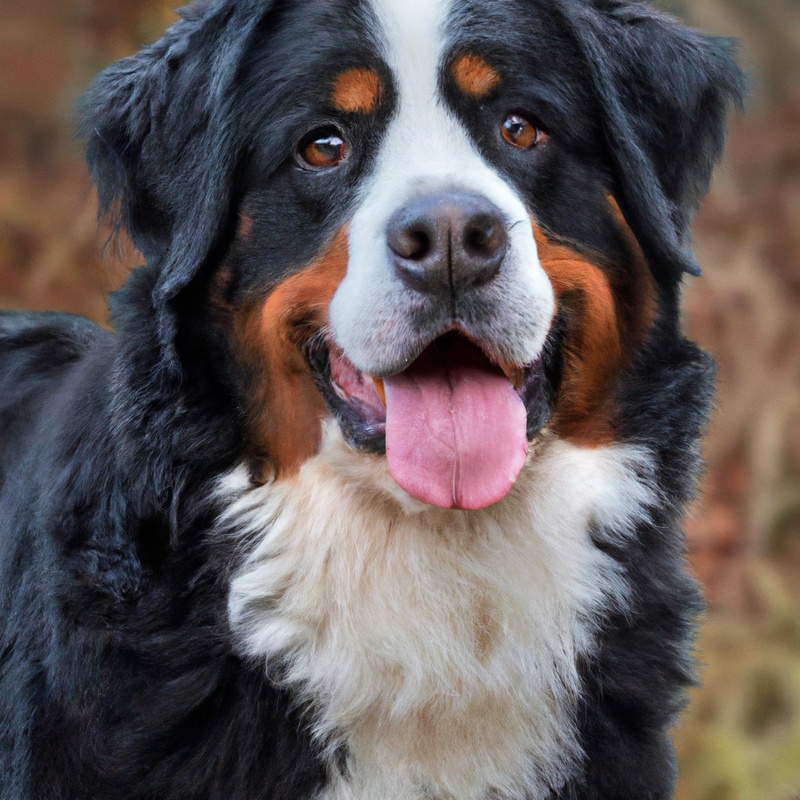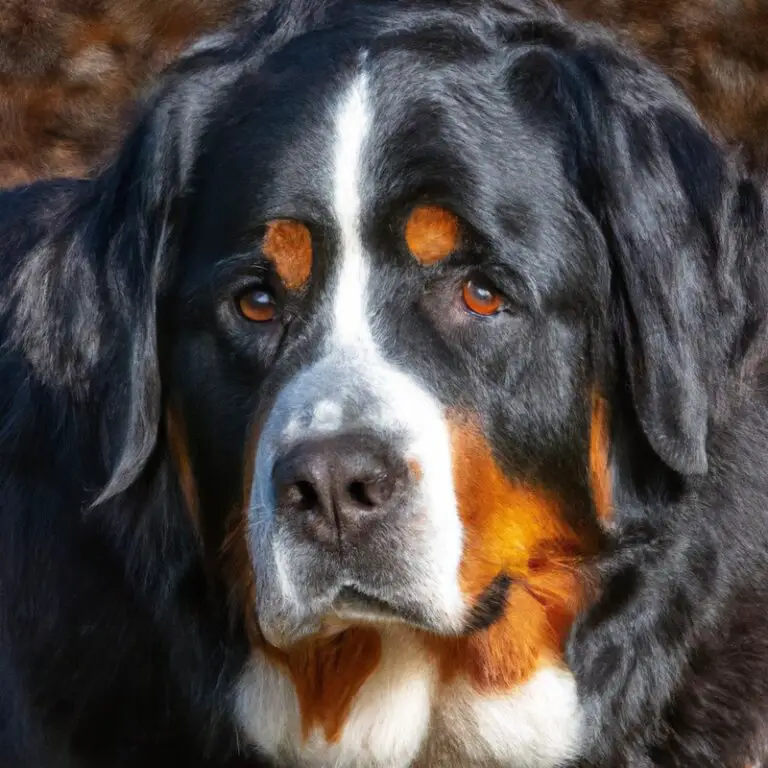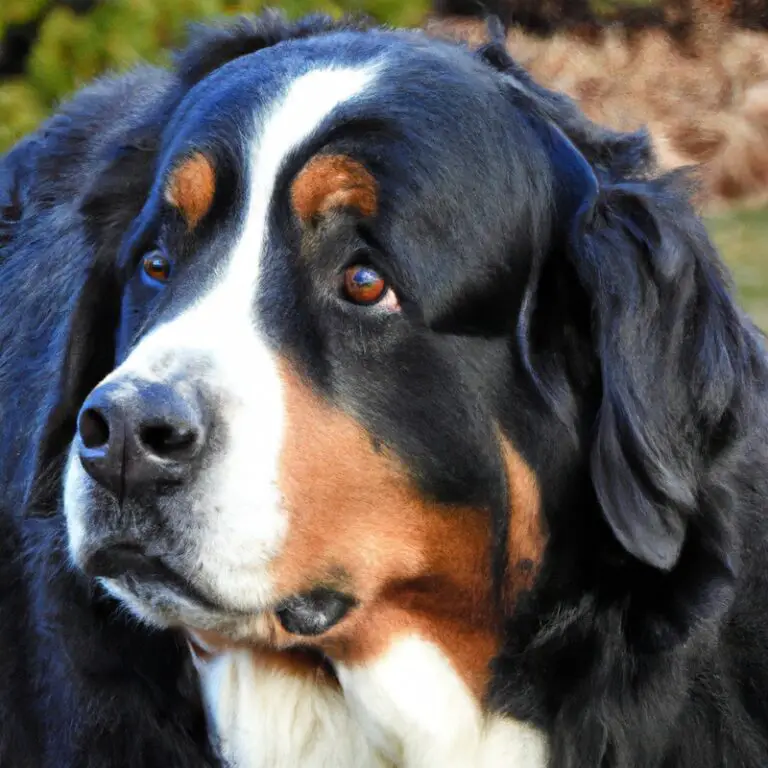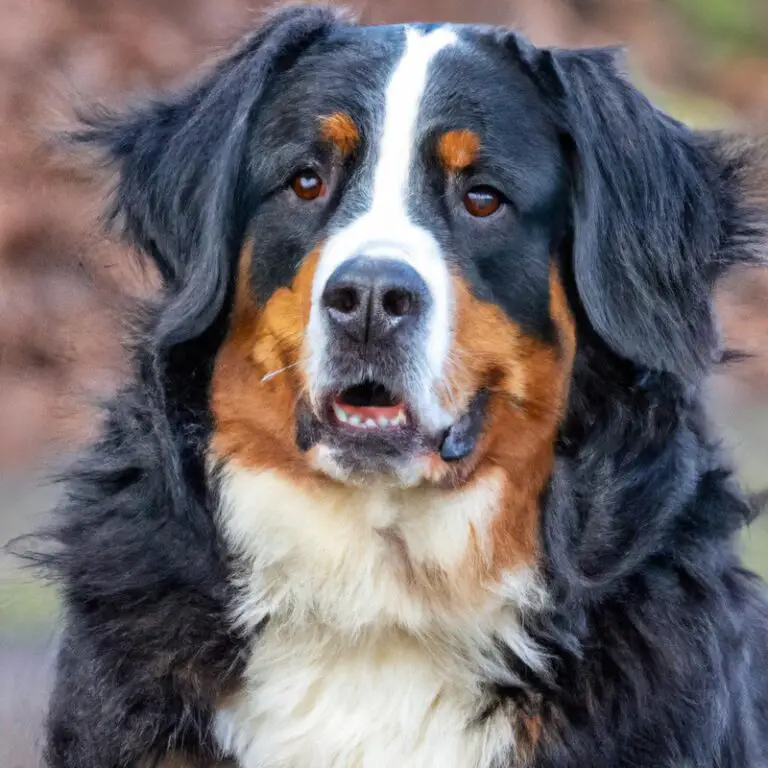Can Bernese Mountain Dogs Be Trained As Therapy Dogs?
Key Takeaways:
- Bernese Mountain Dogs can be successfully trained as therapy dogs.
- Their friendly and calm nature makes them suitable for therapy work.
- Early socialization and consistent training are essential for their success as therapy dogs.
- Bernese Mountain Dogs can provide comfort and support to individuals in various therapy settings.
Hey there! Looking for a furry friend who can bring comfort and healing to those in need? Well, let me introduce you to the fascinating world of therapy dogs.
These amazing canines have a unique ability to provide emotional support, companionship, and joy to people of all ages and backgrounds.
But can Bernese Mountain Dogs, with their gentle nature and majestic appearance, excel in this role? Stick around as I delve into the qualities required for therapy dogs, explore the suitability of Bernese Mountain Dogs for therapy work, discuss the training requirements, and highlight some important considerations.
Together, we’ll uncover the truth behind these lovable giants and their potential as therapy dogs.
Get ready for a pawsome adventure!
| S.No | Question | Answer |
|---|---|---|
| 1 | Are Bernese Mountain Dogs suitable for therapy work? | Yes |
| 2 | Are Bernese Mountain Dogs naturally friendly and gentle? | Yes |
| 3 | Are Bernese Mountain Dogs trainable? | Yes |
| 4 | Are Bernese Mountain Dogs patient with people? | Yes |
| 5 | Do Bernese Mountain Dogs enjoy human companionship? | Yes |
| 6 | Are Bernese Mountain Dogs good with children? | Yes |
| 7 | Do Bernese Mountain Dogs have a calm and relaxed temperament? | Yes |
| 8 | Are Bernese Mountain Dogs large and strong enough for therapy work? | Yes |
| 9 | Are Bernese Mountain Dogs commonly used as therapy dogs? | Yes |
| 10 | What qualities make Bernese Mountain Dogs suitable for therapy work? | Friendliness, gentleness, training, patience, love for human companionship, good with children, calm temperament, and size/strength. |
What are therapy dogs?
Definition of therapy dogs
Therapy dogs are specially trained dogs that provide comfort, support, and companionship to people in various settings. These dogs are used in hospitals, nursing homes, schools, and other environments to help individuals who may be going through physical or emotional challenges.
They have a calm and gentle temperament, and their presence can help reduce stress, anxiety, and depression.
Therapy dogs bring joy and improve the overall well-being of those they interact with.
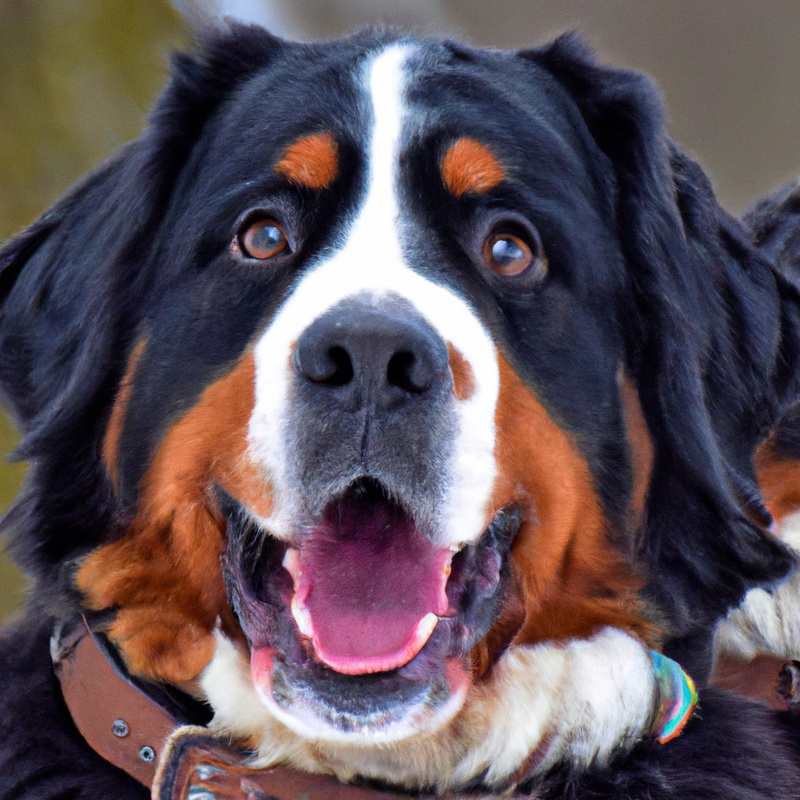
Different types of therapy dogs
Different types of therapy dogs include:
- Emotional support dogs: These dogs provide comfort and companionship to individuals with emotional or psychological challenges.
- Service dogs: Trained to perform specific tasks, service dogs assist people with disabilities to navigate daily life and increase their independence.
- Facility dogs: These dogs work in settings such as hospitals, schools, or nursing homes, providing comfort and support to patients, students, or residents.
- Crisis response dogs: These dogs are specially trained to assist in times of crisis, such as natural disasters or traumatic events, providing emotional support to affected individuals.
- Animal-assisted therapy dogs: These dogs work alongside therapists or healthcare professionals to promote healing and improve the overall well-being of patients.
Each type of therapy dog has its own specific role and training requirements, but they all play a vital role in enhancing the lives of those they assist.
Qualities required for therapy dogs
Temperament and personality traits
Temperament and personality traits are key factors in determining if a dog can be trained as a therapy dog.
Dogs with calm and gentle dispositions are highly desired, as they need to be comfortable around different people and in various environments.
It’s important for therapy dogs to be patient, adaptable, and able to remain calm in potentially stressful situations.
They should also be sociable and friendly, as their main role is to provide comfort and support to individuals.
Therapy dogs should possess a natural inclination towards being gentle, well-mannered, and responsive to training.
Physical characteristics and health
Physical characteristics and health are important factors to consider when training a therapy dog. For Bernese Mountain Dogs, their large size and gentle demeanor make them an ideal breed for therapy work.
They have a thick, double coat that requires regular grooming to maintain their appearance and prevent matting.
Additionally, they are prone to certain health issues such as hip dysplasia and certain types of cancer. Regular veterinary check-ups and a well-balanced diet are crucial to ensure their overall health and well-being.
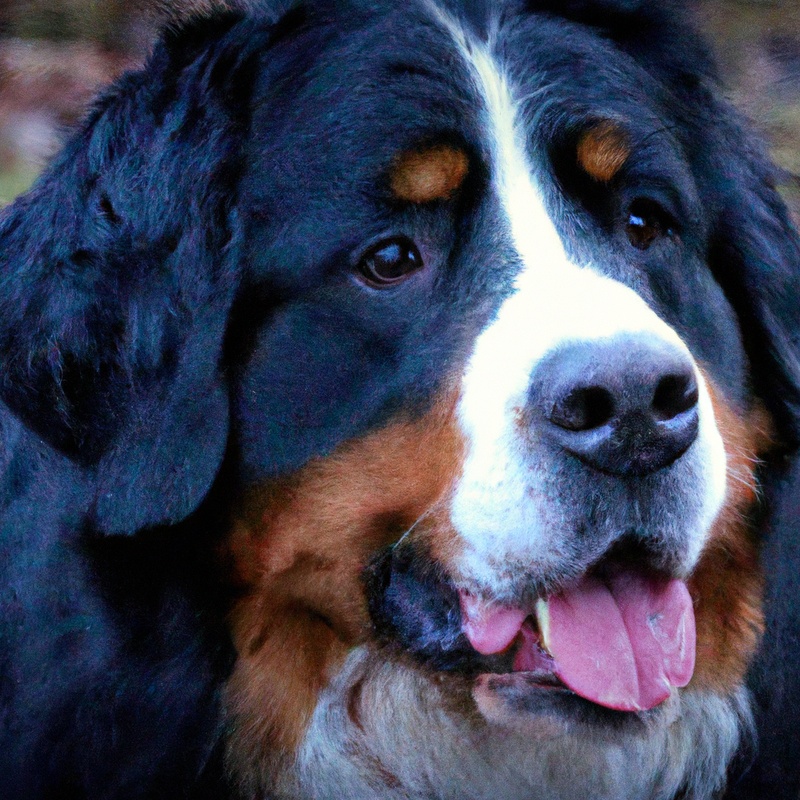
Bernese Mountain Dogs as therapy dogs
Overview of Bernese Mountain Dogs
Bernese Mountain Dogs are large, gentle, and affectionate dogs known for their striking tricolor coats and friendly nature.
Originally from Switzerland, they were bred to work on farms and pull carts.
This breed is known for being loyal, intelligent, and great with families, children, and other pets.
They have a calm and patient demeanor, making them well-suited for therapy work.
These dogs excel as therapy dogs due to their kind disposition and willingness to engage with people.
Whether comforting patients in hospitals or providing emotional support in schools, Bernese Mountain Dogs can bring joy and comfort to those in need.
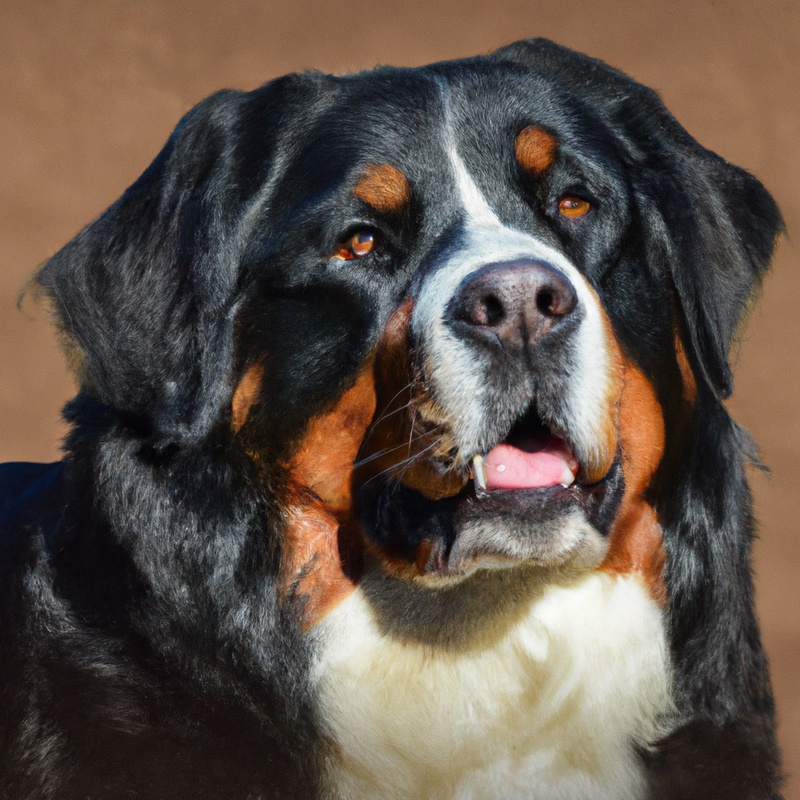
Suitability of Bernese Mountain Dogs as therapy dogs
Bernese Mountain Dogs are well-suited as therapy dogs due to their gentle and calm demeanor.
They have a natural affinity for people and are known for their ability to provide comfort and emotional support.
Their size and strength make them great for tasks like leaning against or cuddling with individuals.
Additionally, their friendly and patient nature allows them to interact effectively with a wide range of individuals, including children and the elderly.
They can bring joy and relaxation to those in need, making them excellent therapy companions.
Training requirements for therapy dogs
Basic obedience training
Basic obedience training is an essential foundation for all dogs, including Bernese Mountain Dogs. It involves teaching your dog basic commands such as “sit,” “stay,” “down,” and “come.” This training helps establish clear communication between you and your dog and promotes good behavior.
It’s important to start training early and be consistent with positive reinforcement techniques.
Regular practice and patience are key to success. Remember, training is a bonding experience that strengthens your relationship with your dog.
Socialization and exposure to various environments
Socialization and exposure to various environments are essential for training therapy dogs.
It’s important to expose your Bernese Mountain Dog to different people, animals, sounds, and places from an early age.
Take them on walks in busy areas, introduce them to new situations and environments, and encourage positive interactions with strangers and other animals.
This helps them become comfortable and confident in different settings, which is crucial for their role as therapy dogs.
Regular socialization and exposure will greatly enhance their abilities to provide comfort and support to those in need.
So, make sure to prioritize these experiences for your Bernese Mountain Dog.
Specific therapy dog training programs
Specific therapy dog training programs focus on providing dogs with the skills needed to excel in their role as therapy companions.
These programs typically include obedience training, socialization, and exposure to different environments and situations.
Dogs learn how to interact calmly with people of all ages and backgrounds, follow basic commands, and remain calm in various environments.
They also receive specific training to help them navigate the unique challenges they may encounter during therapy sessions, such as handling stress, reacting appropriately to different emotions, and understanding personal space boundaries.
These programs are designed to ensure that therapy dogs are well-prepared to provide comfort, support, and companionship to those in need.
Challenges and considerations
Size and mobility challenges
Size and mobility can present challenges when training Bernese Mountain Dogs as therapy dogs. Due to their large size, they require more space and may be difficult to maneuver in certain environments.
Additionally, their heavy build can make it challenging for them to navigate tight spaces or jump onto surfaces.
However, with proper training and socialization, these challenges can be overcome and Bernese Mountain Dogs can still provide comfort and support as therapy dogs. Regular exercise and conditioning can help improve their mobility and adaptability.
Health concerns and lifespan
Health concerns and lifespan: Bernese Mountain Dogs are generally a healthy breed. However, like all dogs, they are prone to certain health issues.
These can include hip and elbow dysplasia, certain types of cancer, and eye problems such as cataracts.
Regular vet check-ups and a nutritious diet can help prevent or manage these conditions. The average lifespan of a Bernese Mountain Dog is typically 6 to 8 years.
However, some may live longer with proper care.
Providing a balanced diet, regular exercise, and mental stimulation can contribute to a longer and healthier life for your Bernese Mountain Dog.
Limitations in certain therapy settings
Limitations in certain therapy settings can affect the suitability of Bernese Mountain Dogs as therapy dogs.
These include:
- Size and mobility: Bernese Mountain Dogs are large and may have difficulty maneuvering in tight spaces or accessing certain areas.
- Energy levels: Their energy levels may be too high for some therapy environments that require calm and gentle interactions.
- Heat sensitivity: Due to their thick coats, Bernese Mountain Dogs may struggle in hot climates or therapy settings without adequate air conditioning.
- Health concerns: Bernese Mountain Dogs are prone to certain health issues, such as hip dysplasia, which may limit their ability to fulfill the physical demands of therapy work.
- Lifespan: Bernese Mountain Dogs have a relatively short lifespan compared to other therapy dog breeds, which can limit their long-term availability for therapy programs.
Considering these limitations is essential when determining the suitability of Bernese Mountain Dogs for specific therapy settings.
Becoming a therapy dog handler
Requirements for becoming a therapy dog handler
To become a therapy dog handler, there are a few requirements you need to fulfill.
First, you should have a strong love and connection with dogs.
Additionally, you should have good communication skills and be comfortable interacting with different types of people.
It’s also important to have basic obedience training for your dog.
You’ll need to complete a therapy dog training program and pass a certification exam.
Finally, you may need to pass a background check and provide references.
Organizations for therapy dog certification
There are several organizations that offer therapy dog certification. Some well-known ones include the Alliance of Therapy Dogs, Therapy Dogs International, and Pet Partners.
These organizations have specific requirements and evaluations that you and your Bernese Mountain Dog will need to pass in order to become certified.
They often involve a combination of temperament testing, obedience training, and supervised visits to various healthcare facilities. It’s important to research and choose a reputable organization that is recognized and respected in the therapy dog community.
Frequently Asked Questions
How long does it take to train a Bernese Mountain Dog for therapy work?
Training a Bernese Mountain Dog for therapy work typically takes around 12 to 18 months.
However, the duration can vary depending on the individual dog’s temperament, personality, and prior training experience.
Consistency, positive reinforcement, and patience are key factors in successful training.
It’s important to work with a certified professional who specializes in therapy dog training to ensure the dog receives proper guidance and support throughout the training process.
Can Bernese Mountain Dogs be used as emotional support dogs?
Yes, Bernese Mountain Dogs can be used as emotional support dogs.
Their gentle and affectionate nature makes them great companions for emotional support.
They are known for their calm and patient temperament, and their size and cuddly nature can provide comfort to those in need.
They are naturally intuitive and can sense when their humans are feeling down or anxious, offering comfort and support.
Their loyal and loving presence can bring a sense of calm and emotional grounding.
What other breeds are commonly used as therapy dogs?
Other breeds commonly used as therapy dogs include Labrador Retrievers, Golden Retrievers, Poodles, and Cavalier King Charles Spaniels.
These breeds are known for their friendly and gentle nature, making them well-suited for providing comfort and support to individuals in need.
Additionally, they are often highly trainable and responsive, which enhances their effectiveness as therapy dogs.
Final Verdict
Bernese Mountain Dogs can indeed be trained as therapy dogs.
With their gentle temperament, friendly nature, and willingness to please, these dogs can bring immense comfort and joy to individuals in various therapeutic settings.
However, it’s important to consider their size, health concerns, and limitations in certain environments.
Proper training, socialization, and certification are crucial for both the dog and handler.
Overall, Bernese Mountain Dogs have the potential to make fantastic and effective therapy dogs, providing much-needed emotional support wherever they go.

